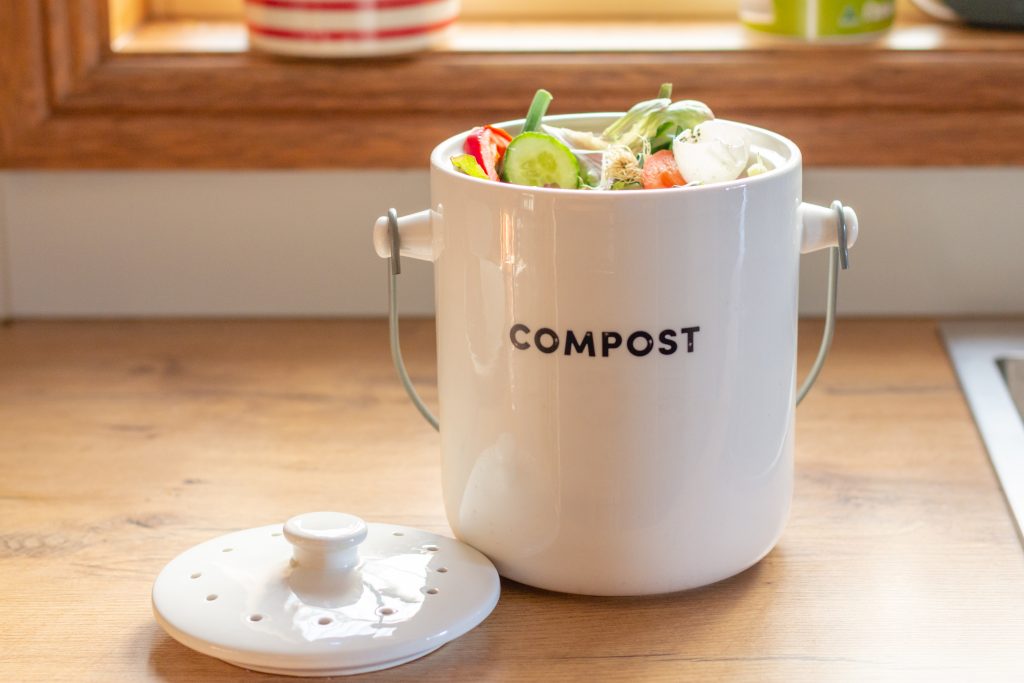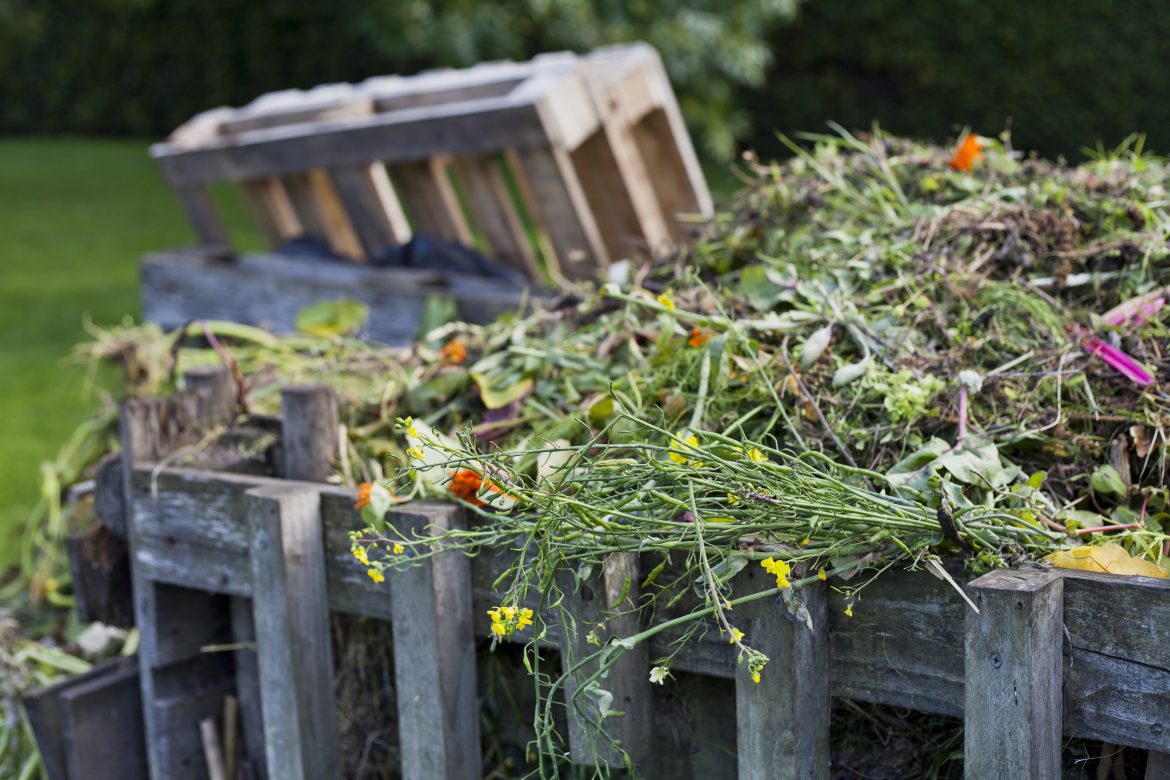This article was originally published on July 31, 2014 and was updated on August 10, 2020.
Hello everyone and welcome to Composting 101. So, you want to know how to start composting in your home and garden? Let’s jump right in, shall we?
What is Composting?
Composting is nature’s process of recycling decomposed organic waste and turning it into a nutrient-rich material called humus. In the process of composting, the goal is to create a healthy compost of nutrient-filled scraps, which makes the soil healthier, reduces the use of pesticides, and decreases methane emissions in landfills. These scraps can include coffee grinds, potato peelings, leaves, pine straw, banana peels, etc. According to the Environmental Protection Agency (EPA), “food scraps and yard waste together currently make up more than 28% of what we throw away, and should be composted instead.”
The scraps are often collected in a composting bin or kitchen collector depending on the amount of scraps you plan on collecting.
Different Types of Composting:
There are a couple different types of composting, and no single one is better than the other.
Aerobic Composting– aerobic composting consists of collecting waste high in nitrogen that will grow bacteria and create warm temperatures. Examples of high nitrogen waste are grass clippings and other green pieces. During this type of composting, the organic waste breaks down quickly and accumulates moisture. While it is a high maintenance type of composting, it is a perfect fit for large amounts of compost.
Anaerobic Composting– anaerobic composting is composting without any air. For anaerobic composting, the only requirement is to collect organic waste and let it decompose. Unfortunately, there are quite a few disadvantages to this type of composting including a harsh smell. There are some benefits to anaerobic composting though! If a busy schedule is getting in the way of your composting, anaerobic composting is just for you. It requires very little upkeep and prevents putting unneeded waste in the landfills.
Vermicomposting– vermicomposting is often known as the most beneficial for composting food waste. This type of composting includes oxygen and moisture, and uses bacteria, fungi, insects, and other bugs, like red worms. The insects are extremely beneficial in breaking down the organic wastes for other insects to eat or by eating the waste and then leaving their castings to contribute to the compost. Vermicomposting requires a medium amount of upkeep and is perfect for newfound composting families!
What Are the Benefits of Composting?
Composting is beneficial in so many ways! Since the process of composting encourages the production of microorganisms, including bacteria and fungi, its creation of humus keeps the soil nutrient rich and filled with moisture.
Apart from enriching soil, compost also helps revamp contaminated soil, prevents pollution, and offers economic benefits. According to the EPA, the composting procedure has been shown to muddle heavy metals and prevent them from reaching water supplies or being absorbed by plants. The process also decreases materials from landfills and makes for a cheaper alternative to the conventional methods of cleaning up polluted soil. And as we mentioned above, it decreases the levels of harmful methane emissions coming from food and farm waste in landfills.

How to get started:
To start out, it’s important to choose which type of composting you would like to do. The next step is to get a compost container.
For those who live in a home with a back yard that’s great! Depending on the type of composting you plan on doing there are several options. There are compost bins, homemade composting pails, or you can dig a composting hole!
For those of you who don’t have access to a back yard, not to worry! You don’t necessarily need a yard to compost. Start out by collecting organic waste in a small kitchen collector or pail similar to these:
- Mr. ECO Kitchen Composter w/ Hideaway Tumbler
- Gardeners Edge
- Plow & Hearth Lattice Ceramic Compost
- Exaco Trading Co. ECO-2000 Plus Kitchen Compost Waste Collector
Many communities have organized composting where you can bring your individual compost collections to drop-off points which can be especially effective in big cities like New York City. If your community doesn’t have a program for composting, you could very well be the person who starts the change! So, check out how you can make composting work for you and happy composting.
 Food
Food Farmers
Farmers Sustainable Living
Sustainable Living Living Planet
Living Planet News
News